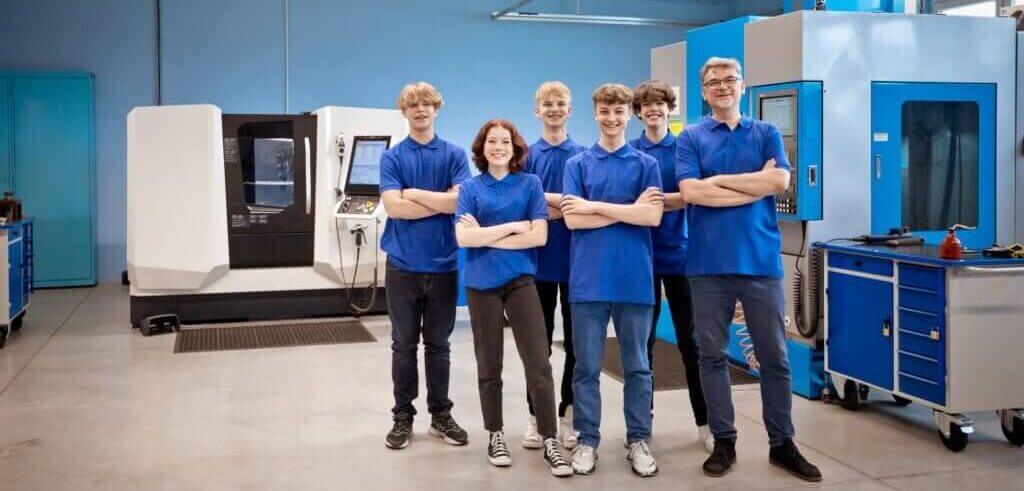Germany’s Dual Education System: Is Ausbildung Right for You?

In recent years, more and more international students and job seekers have turned their eyes towards Germany—not just for its world-class universities, but also for its remarkable vocational training programs. Among them, the Ausbildung program in Germany stands out as a unique pathway that combines practical training with theoretical education. But what exactly is this system, and is it the right fit for you?
Understanding the Dual Education System
Germany’s dual education system-also known as “duales ausbildungssystem”-is a specific approach to learning that mixes the classroom instruction with work experience on hand. Unlike traditional educational programs, which emphasize theoretical knowledge, this model ensures that the students get directly relevant practical skills to their careers.
The center of this system has an ausbuild program in Germany, a structured business training course that prepares individuals for a wide range of skilled businesses. From nursing, IT, and engineering to hotel management and retail, Ausabildung covers more than 300 businesses. Usually between three and a half years, the program provides a direct route in the German workforce.
What Makes Ausbildung’s Unique?
The defining function of the Ausbildung’s device is its integration of work and examination. Trainees spend part of their week attending classes at vocational colleges (Berufsschule) and the last days working in an enterprise. This format guarantees that they not best recognize theoretical principles however additionally recognize a way to observe them in actual-global settings.
Participants inside the Ausbildung program in Germany earn a month-to-month stipend at the same time as schooling. This monetary gain makes the program mainly attractive to students from international locations like India, Nepal, and numerous African international locations, where the price of education abroad may be prohibitive.
Another great aspect is the guaranteed task potentialities after entirety. Since the host business enterprise invests time and resources in schooling the candidate, many offer permanent roles upon a successful final touch of this system. This opens a clear and stable career route—often with alternatives for everlasting residency or citizenship later on.
also read:- Sachin Tendulkar’s Birthday
Who Should Consider Ausbildung?
The Ausbildung path is ideal for individuals who:
- Prefer practical, hands-on learning over academic theory.
- Want to enter the workforce quickly with specialized skills.
- Seek a low-cost or funded education option abroad.
- Aspire to live and work in Germany long-term.
For Indian students, the ausbuild program in Germany offers a valuable option for traditional studies and abroad routes such as a bachelor’s or master’s degree. Not only is it more inexpensive, but it leads directly to employment – something that cannot always give academic degree guarantee.
Students must have at least one high school diploma (class 12 or equivalent), a basic understanding of German (usually B1 or B2 levels), and their chosen field.
also read:- Build Your Own Rummy Game With Expert Developers
Benefits of the Ausbildung Program in Germany
- No High Tuition Fees: Unlike universities, most Ausbildung programs are tuition-free, and students receive a monthly allowance, which covers living expenses.
- Work Experience Included: Trainees gain valuable on-the-job experience from day one, making them more employable.
- High Demand Occupations: Sectors like healthcare, engineering, and IT have a high demand for skilled professionals in Germany, making Ausbildung in these areas especially rewarding.
- Pathway to Residency: Upon completion, many Ausbildung graduates are offered long-term job contracts, which can lead to permanent residency or a Blue Card.
- International Recognition: A qualification from the Ausbildung program in Germany is respected worldwide, especially within the EU.
Challenges and Considerations
While Ausbildung offers many advantages, it’s not without demanding situations. The primary hurdle is language skillability. Most Ausbildung applications are performed in German, and a B1/B2 degree of fluency is normally required. However, many institutes and companies now provide German language courses to help international students put together.
Another consideration is cultural variation. Living and running in Germany involves adjusting to a distinctive tempo of life, place of work culture, and every so often, climate. But with a little education, those challenges may be managed efficiently.
Steps to Apply
- Choose Your Career Path: Research which professions interest you and are available under the Ausbildung framework.
- Learn German: Start language classes early to reach at least B1 level proficiency.
- Prepare Documents: These include your high school diploma, language certificates, a CV, and a motivation letter.
- Search and Apply: Look for Ausbildung openings on German job portals, company websites, or through agencies that specialize in international placements.
- Visa and Relocation: Once you secure a position, you can apply for a vocational training visa and make arrangements to move to Germany.
Conclusion
The Ausbildung application in Germany is more than just a vocational schooling course—it is a gateway to a promising future. Whether you’re a recent college graduate, a professional switcher, or someone seeking out global publicity, this dual schooling machine offers real-international abilities, monetary balance, and lengthy-term career possibilities. With a bit of effort and making plans—in particular in learning the German language—you can flip this opportunity into a life-converting experience.
So, is Ausbildung right for you? If you are seeking out a lower priced, practical, and secure direction to running in Europe, the answer simply might be yes.




